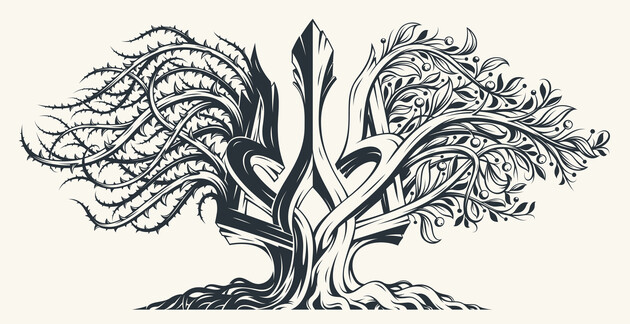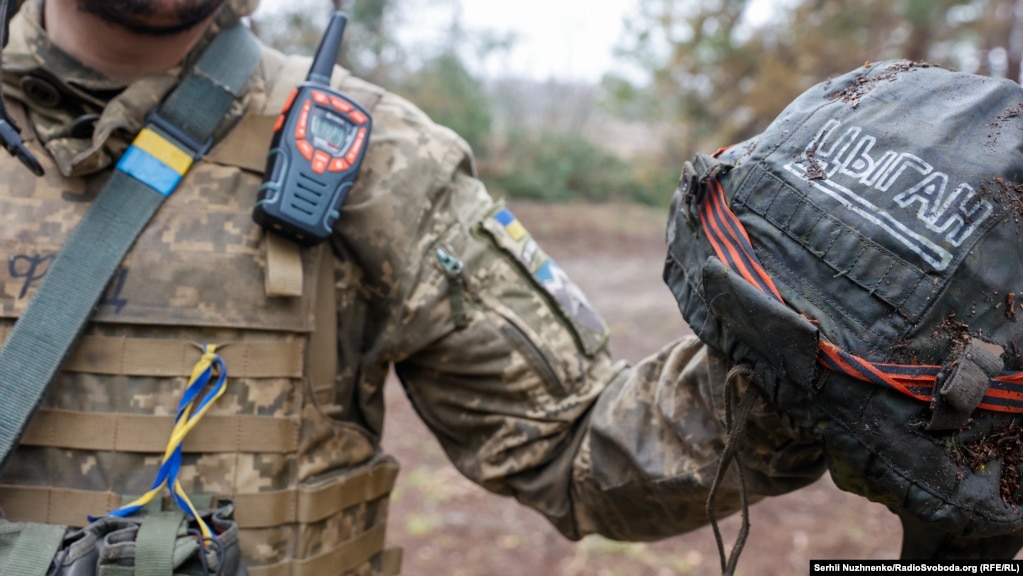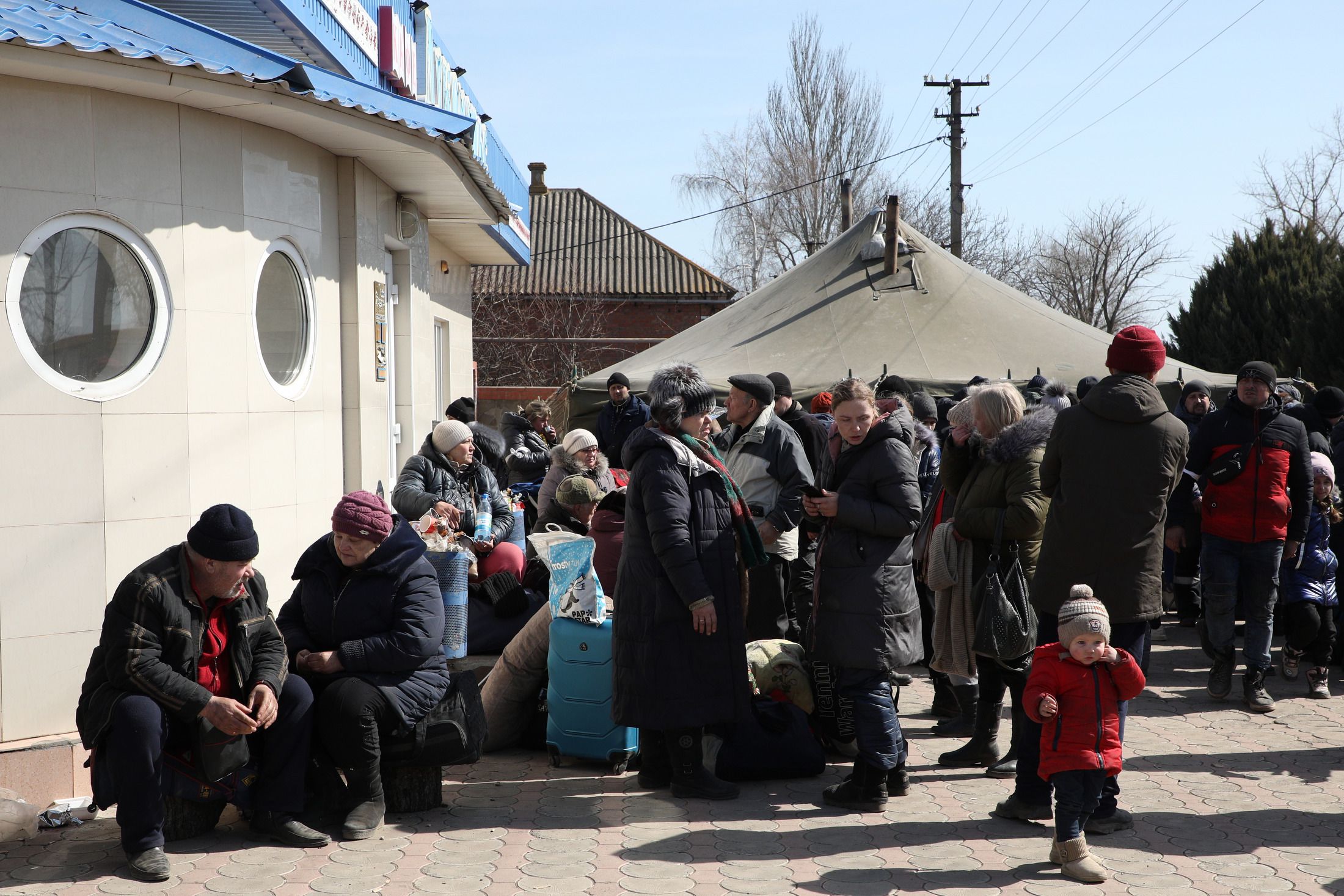“Ukrainian Peace” - seven main threats from the war with Russia
article by Dmytro Natalukha, Head of the Verkhovna Rada Committee on Economic Development,
translated into English by Mykhaylo Fedor,
read by KS Lack
Throughout human history, collective security in hostile environments has had various forms and was conceived of in different ways.
For example, take the concept of pax, which exists in international relations and historiography, and stems from the Latin for “peace” (an antonym to “war”). In different times and in different parts of the world, certain countries and/or government entities accumulated such military might that they alone could guarantee periods of relative peace for the territories they controlled or influenced.
One of the best known of such periods is Pax Romana—the “Golden Age” of the Roman Empire (27 BC-180 AC). For approximately 200 years, relative peace and order prevailed in the territories controlled by Rome. Similarly, Pax Britannica (1815-1914) describes the period of UK global hegemony, when the United Kingdom possessed absolute military power.
The name for the period between 1945 and 1992 varies, depending on the territory influenced — Pax Americana (US) or Pax Sovietica (USSR). To this we must add Pax Europaea (EU), which lasted until 2022.
All these and other peaceful periods (Chinese Pax Sinica, Mongolian Pax Mongolica, Ottoman Pax Ottomana, and even such an exotic one as the criminal Pax Mafiosa) are similar in that all of them required existence of one powerful entity acting as a guarantor of peace and security. This meant that, in case of a need, this entity could use (or threaten to use) military power of such magnitude that it would be sufficient to stop war and restore peace. All these periods were named after one such entity: Pax Romana, which translated, literally means “Roman peace”.
In 2022, we’ve learnt that such a global entity no longer exists.
A new entity has emerged instead. This entity cannot guarantee peace and security alone to a region; it is not a hegemon; and its military power is not always decisive. But the very fact of its sovereignty and independence has turned out to be an integral part of peace and security in its region, and perhaps the world. This entity is Ukraine.
Pax Ucraina
To be more precise—Pax Ucraina. We are not in a time when peace and security are possible because of one actor. Rather, they are impossible in the absence of this one actor—Ukraine. “Absence” here implies all meanings of the word: loss of sovereignty; an absence of freedom leading to enslavement and occupation; any deviation that leads to exclusion from the constellation of European countries.
Whether due to globalization, geography, or just the stars aligning, 2022 has clearly demonstrated that the concept of pax as peace guaranteed by one actor has become irrevocably outdated. Peace today is a cluster phenomenon, a result of interconnected factors and actors, where their absence is more likely to cause a war than their presence.
If the war started by Russia against Ukraine on 24th of February 2022 had met its goals — if the Kremlin had been successful and Ukraine had lost—Europe, and potentially the whole world, would have faced a crisis of unprecedented magnitude. Ukraine is a part of a new global security architecture—Pax Ucraina— which has emerged, not because of, but despite collective efforts. Its inception, perhaps, happened on the day when Ukraine, one of the largest countries in Europe, voluntarily gave up its nuclear arsenal. Its demise could have happened at the end of February 2022, which would have completely destroyed the world known today as “Western”: similar to how a big barrel drains away if a barely visible chip is removed.
The Seven Lives of Europe
So why would Ukraine’s defeat and Russia’s success create a “Western world” empty of all substance? And how would the world change afterwards?
1. Confirmation of the myth about the invincibility of the Russian army and Russia’s influence in the world.
Ukraine’s loss would have demonstrated a crucial fact: that despite all the help from the Western countries, all the weapons and military training, all the intelligence, coordination, foreign legion, etc., the Russian army turned out to be more successful than the collective Western military machine. In other words, Russia literally overpowered the West.
The “Dictator’s fog” around Putin would grow thicker. Confidence in his own invincibility (hence permissiveness) would become peremptory. If the Ukrainian Army—50 times bigger than the Moldovian, 17 times bigger than the Swedish, 11 times bigger than the Finnish, and 6-7 times bigger than those of the Baltics—has fallen, why would the Russian Army meet with any resistance in these countries?
Having to evaluate every move through the prism of a possible confrontation with Russia’s army would lead to a new order in Europe and in the rest of the world. Military power, and not the economy, would become the new defining factor.
And Russia, confirming its self-invented myth about being the second strongest army in the world, would have a dominant position in defining this new world order.
2. The growing influence of populist parties in the EU.
In this new order, influential Euro-skeptic parties, or even whole governments sympathetic to Russia, would be encouraged by the Kremlin’s impunity and Brussel’s helplessness (which is how Russia’s success would be viewed) and radically change their tone—from European institutions, relations with their overseas allies, and even their place in the world political system.
Confirmation of the myth of Russia’s military power would lead to increased confidence in the Kremlin’s unwavering support of European Russophilian parties and governments. Their actions, politics and behavior would become bolder and more audacious. The opposition, meanwhile, would grow more careful and accommodating as support deteriorated.
This would strengthen and speed up disintegrative conflicts inside the EU and would lead to Europe itself becoming a new battleground between the USA and Russia.
3. War in Europe and the end of Pan-European and Transatlantic projects
Pro-Russian parties in Europe would not only raise their heads, but would likely declare their close relationships with the Kremlin as a political advantage.
The already-mentioned shift from economic to military domination as the traditionally decisive factor of international politics would add to this—we’d witness the resurrection of the primitive power factor. These two factors would push non-military international institutions and blocs— such as the EU—aside, as the only thing required by member-states would be military support and guarantees of security, as opposed to economic integration.
In this environment, it would not be long before we’d cease to recognize the European political landscape as it is known today.
Legitimized Russophile sympathies on one side, coupled with the pressing need to survive in an environment of primitive power on the other, would turn Europe itself into a battlefield.
War would break out between Pan-European and Transatlantic supporters of the US and Brussels, versus those countries that defend Moscow, owing to their security, economy, and well-fed aging elites being dependent on Russian gas, Russian capital and Russian weapons.
Of course, this war wouldn’t be fought with weapons, given that all participants— Moscow, Washington, Paris, London and few others—are nuclear powers, but rather with economics, trade and intelligence. But it would mean certain death for both the Pan-European project and the United Europe.
Russia’s new world role, together with this new ‘disintegration war’ in Europe would put an end to any future NATO and EU expansions. Without Russia’s direct approval, no country would be able to join any bloc. This would not only leave countries like Moldova, Georgia, North Macedonia and few others outside of such blocs (hence keeping them in the high risk zone), but would also place the EU and NATO into a position where they are unable to freely decide on their expansion policies and would need to be focused solely on preserving what they already have.
4. Economic restriction and the “Dark Deal”.
The modern European borders, recognized by the world in the Helsinki Act of 1975, would become fiction, something for the history books, together with the philosophy of international law and international treaty law, in principle. Consensus would no longer be a decisive tool in the establishment of the new world order and would be replaced by power. This is yet another dimension where “power” takes on a new, dominant meaning. This would force countries bordering Russia, Belarus, and even a partly occupied Ukraine to completely review their budgets from a security perspective, increasing their military spending.
The Baltic states, Poland, Moldova, Romania and even Turkey would be among the first countries to sacrifice their economic development and quality of life measures in order to dramatically increase their defense spending. Other EU member-states would be forced follow, albeit a bit slower. But the longer Russia stays in Ukraine, the more military spending, tension and uncertainty will increase in the EU and NATO frontier countries, increasing overall entropy on the continent.
Russia’s potential control of Ukraine’s coastline would inevitably lead to an increased military presence in the Black Sea and the eastern part of Mediterranean on Russia’s part. This would certainly impact the balance of power between Moscow and Ankara, two nations that are still trying to find their equilibrium after the Syrian war. In this scenario, Ankara would most likely rush to strengthen its cooperation with its old allies—USA and NATO—which would lead to yet another zone of confrontation between Russia and NATO and accelerate the global trend towards ncreased military spending.
It is important to note that the military spending has been on the decline in Europe for the last 60 years. Western countries have had the luxury of decreased military expenditure, instead spending funds on things that make the lives of their citizens more peaceful and longer, as opposed to more militarized and shorter: medical services, education, science and the environment, in particular. For example, the famous EU Green Deal, aimed at reducing carbon emissions, is not realistic during war nor increased militarization, as wars and military-industrial complexes are the biggest environmental pollutants in the world.
This is why military expenses in the EU have been steadily decreasing for the last 60 years: defense budgets dropped from 4% of GDP in 1960 to a historic low of 1.3% of GDP in 2014. It was kept at this level till late 2018 (itself a significant non-reaction by Europe to the war the Kremlin launched in 2014, annexing Crimea and Donbas) and only in 2020 showed some visible increase, to 1.6% of GDP, owing to the increasingly aggressive behavior of the Russian Federation.
This period of peace and stability allowed countries to spend money on health, education, the environment and life; not on tanks, missiles and death. But 2022 has changed everything, and the noble goal of the Green Deal of saving the planet has been replaced by the goal of the new “Dark Deal” of saving countries from an insane Moscow: at least seven member-states of the EU have already declared a significant increase in their defense budgets, which will exceed 2.5% of their GDP in the upcoming years.
This means there will be less money for education, health, the environment and the economy in general, which will shrink and lose its ability to continue to maintain the standards and a quality of life assumed in today's Western world. A new arms race will inevitably lead to the curtailment of many development programs and slow the overall progress of a more stable world.
5. The Kremlinization of Europe.
The entire continent would need to sacrifice its economic growth and quality of life to pay for an increase in military defense spending. Yet this would not necessarily lead to a de-Russification of western economies in areas like trade, energy, and other fields. With Russia’s success, Western countries would be faced with a “sitting on two chairs” problem—a hard choice between lifting sanctions or maintaining them.
Even today, after all the atrocities carried out by Russia’s army in Ukraine; after Moscow’s outright public threats to EU and NATO countries; after disregarding all conceivable rules, norms and agreements, some of the leading EU economies are still looking for a way to soften their stance towards sanctions, if not the avoid them altogether. It’s not hard to imagine what Ukraine’s most pragmatic “allies” would have said if Russia’s invasion had succeeded as per the initial plan—we’d hear about a fait accompli and the need for new compromises to stabilize the situation.
In such circumstances, some governments would insist that the sanctions themselves were destabilizing and exacerbating the relationship and make it impossible to effectively reconcile the situation, or worse: domestic problems would grow, leading to voter dissatisfaction, thereby narrowing the space for negotiation maneuvers.
These maneuverings would be further limited by a new wave of refugees from Ukraine, as the loss of human life would not disappear: Ukrainians would keep fighting a partisan war and Russia would retaliate more and more brutally in response, especially towards civilians.
In such circumstances, European governments would hardly agree to completely lift sanctions (as this would further strengthen Russia’s influence in the world). Most likely, they would propose to resolve the “here and now” problems— issue a few public statements, leave some symbolic restrictions in place, and return to doing business as usual.
Projects such as Nord Stream 2 most likely wouldn’t be canceled, as Russian gas addiction is harder to overcome for some countries than heroin is for drug addicts, while other Russian energy projects in Europe would get new funding to boost loyalty.
The Kremlin would grow its roots even deeper into European soil; in a decade, it would be hard imagining any systemic decision in the EU being made without prior consultation with Moscow. Trade and cooperation might be admired by some, but it would be like cooing over mistletoe— a beautiful parasite that slowly, branch by branch, conquers the whole tree.
The Daily Global Danger
It seems to me that the five points listed are more than enough to support the “Pax Ucraina” argument raised at the beginning of the article. Especially if we add global food security to the list, since no one will trade directly with occupied territories, given the high risks. This endangers the reserves of grains sold by Ukraine.
However, ignoring the consequences of Ukraine's defeat on the world's collective security system fails to outline the full extent of inevitable change. Scholars and experts on international relations would probably do this more thoroughly, but I believe it is important to add two more arguments in order to complete the picture.
6. Isolation of global players and new, “impossible” security conditions.
Russia’s success in Ukraine would cause irreparable damage to the reputations of the EU and NATO, who both, long before the invasion, had declared Ukraine a priority. Relations with key allies and partners would be irreparably damaged. Not only would they question US superiority in Europe, but doubts would be sown among member-states of Transatlantic and European blocs about whether these institutions were able to to guarantee peace and security on the continent at all.
The situation would be further complicated by the balancing act needed by the West: how to re-inspire confidence in the collective security of its member-states while not provoking Russia any further. A new, restructured and reliable system of security, that simultaneously avoids escalation with Moscow—two new, and in many regards, mutually exclusive challenges. Success seems improbable.
At the same time, in this newly revised security system, frontier member-states would no longer allow for any ambiguity of interpretation of NATO’s Article 5– Washington would have to set the criteria for its application in stone. Otherwise, only central (in all senses of the word) countries would feel relatively safe. Countries on the periphery of the bloc would feel abandoned when in danger. Resentment would weaken mutual support.
Losing consolidated support from the EU would cause irreparable damage to the US. Not just because the EU and the US are major trade and investment partners, but also because a scattered and destabilized Europe would make any effective US foreign policy practically impossible: from the Green Deal and nuclear arms reduction to the containment of Russia and China. The isolation of global players in these circumstances would change the world and its priorities beyond recognition.
7. New positions for China
Lastly, the long war in Ukraine has already harmed China’s ambitions to become a central trade node in Eurasia, owing to the war's uncertainty and unpredictability. At the same time, a “quick and victorious war” as designed by Putin probably would have been acceptable to Beijing. It would have likely forced the US and Europe to court China as the more reasonable half of the Russian-Chinese duo, capable of offsetting the irrationality and bloodthirstiness of Putin. In this scenario, China would have gained a very interesting position for negotiations.
Instead of a conclusion
You can stop here and ask me a reasonable question: what is the point of this article, since these scenarios didn’t happen? Ukraine hasn’t lost; Russia hasn’t gained significant progress in any direction; and numerous western experts openly talk about Ukraine's inevitable win.
The answer to this question has two dimensions. First, the moral-philosophical one: the aim wasn’t only to provide arguments for Pax Ucraina, but also to demonstrate why Ukraine’s struggle has more than local significance. In this context, “Ukrainians are fighting for Europe” is not wishful thinking, but a completely objective and dangerous reality, caused by the particularly causal relationship described above. All the military and financial support from the EU and the US should be viewed from this context.
The second dimension is, in a sense, etymological. Today, it seems that everyone agrees in defining Russia as an aggressor that committed an illegal act of territorial aggression against another independent country. However, I am afraid that this is where the unity of interpretation of the categories of this war ends.
There is little common ground in determining why Russia attacked (the argument about NATO), in the vocabulary used (i.e., “Ukrainian crisis” or the “situation around Ukraine”), or even in understanding the options and consequences of ending the war (the difference between the terms “victory” and “peace”).
The latest public speeches by European politicians about the need to “save Putin’s face” emphasize these differences, which pose a great danger for ending this war in the interests of both Ukraine—whose interests should be first and foremost—and the Western world.
Therefore, I’d like to pay special attention to what victory IS NOT, and to what is not acceptable in general:
- Freezing the conflict with Ukrainian territories occupied by Russia
- Territorial concessions by Ukraine in favor of Russia during the process of peaceful settlement
- Withdrawal of Russian forces only to the positions before February 24, 2022.
Either of these three scenarios (or any variations) are more than NOT a victory for us, but are exactly the “defeat of Ukraine” or “victory for Russia” as described in this article, with all of their dire consequences for Europe and the world.
Yes, the scale of these consequences would probably vary, since none of the goals declared by Russia have so far been met in any form. But Russia should not be given a helping hand to meet any of these goals, or be allowed to return to a position of leadership with the rest of the civilized society.
Freezing the conflict, offering concessions or an incomplete withdrawal of Russian forces from the territory of Ukraine (including Crimea and Donbas) would make Pax Ucraina impossible, which threatens both regional and global security in the medium term.
Read this article by Dmytro Natalukha in russian and Ukrainian at the links.
Please select it with the mouse and press Ctrl+Enter or Submit a bug














 Login with Google
Login with Google